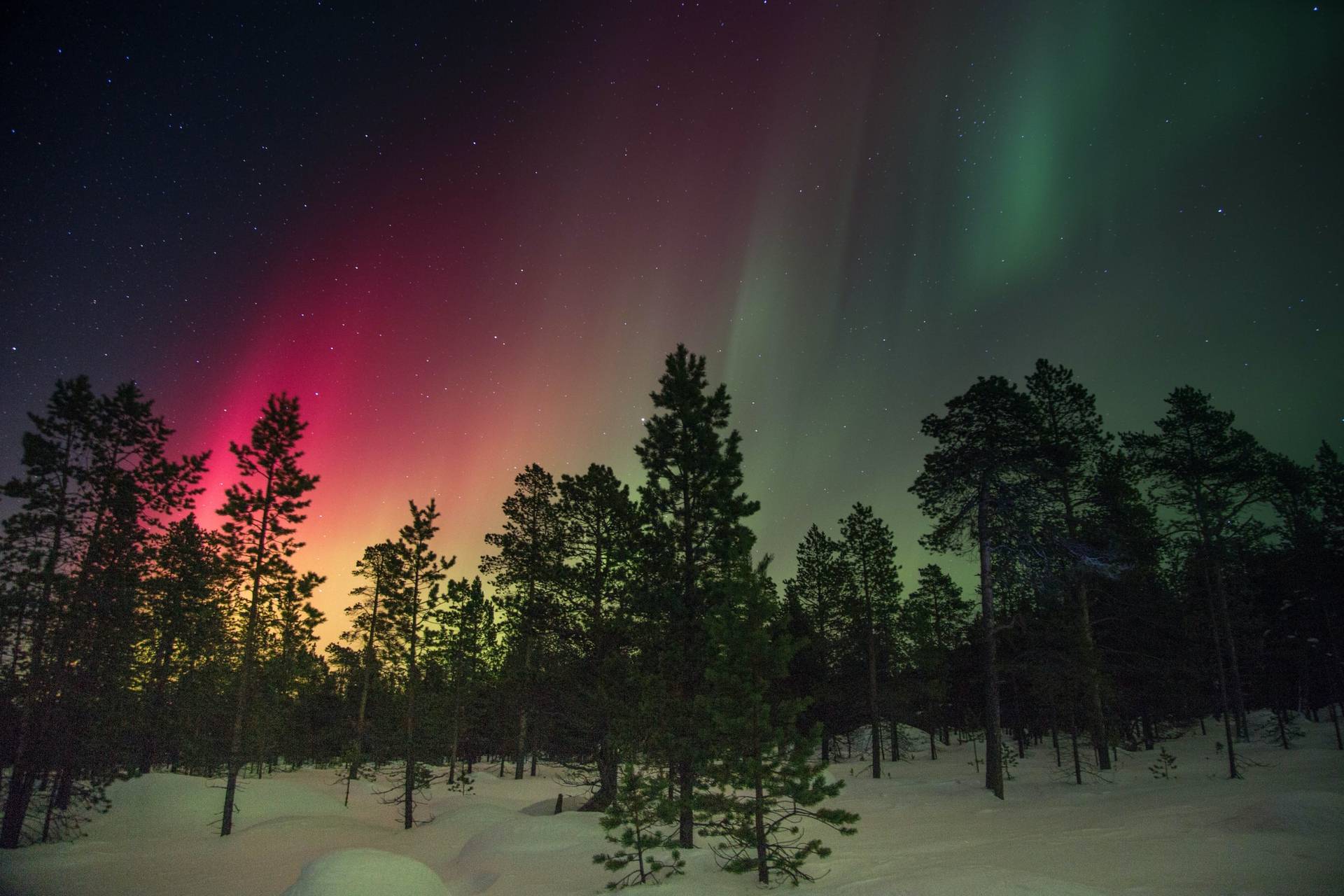
Why Does Anything Exist?
Why is there something rather than nothing? In this extract from Chapter #1 of our Life's Big Questions course, we investigate philosophy's best answers to the question of why anything exists.

You exist. Let’s just take that in for a moment. You exist. And you exist not in some general, abstract way, but in a highly specific form, at a very particular time and place. You are you. A human being, here, now, existing on a planet that’s hurtling through space at 30 kilometers per second.
And it’s not just you. Other people seemingly exist here too. As does the place you grew up, and the screen upon which you’re reading these very words. All of it’s here.
The reason for the existence of most of the things we encounter in our day-to-day lives can be explained quite easily: something caused it.
Take your screen: it exists because someone created it. Take you: you exist because some people created you. Take the people who created you: they exist because some people created them. And so on, and so on… stretching all the way back through thousands of years to your first non-human ancestor, and before even then to single-celled organisms.
And before then?
At this point, the historical details get a bit fuzzy. But we’re confident that, whatever happened, it was due to certain preconditions that caused it to happen.
Every event, we nod knowingly, must have a cause. Life propagated on Earth due to certain preconditions. And before that, Earth formed as one of a number of planets in the solar system due to certain preconditions. And before that, the Milky Way formed due to certain preconditions… and so on.
But what happens when we rewind this causal chain of preconditions all the way back to its beginning?
Physicists postulate there was a Big Bang. But experience tells us that explosions don’t just happen spontaneously… they, like all other events, must have a cause.
Now we’re approaching the heart of the matter.
Indeed, if our universal chain of causation starts at the moment of the Big Bang, then what set the preconditions for the Big Bang?
In other words, why does anything exist? Surely, it would have been simpler for nothing to have existed at all, rather than for all this stuff to spring into existence...
Framing the question
Nothing being simpler than something is certainly what 17th-century German philosopher Gottfried Wilhelm Leibniz propounds in his 1714 work, Principles of Nature and Grace.
Leibniz argues that nothingness — no Earth, no stars, no galaxies, no universe, no atoms, no physical laws — would have been “simpler and easier” than the existence of the universe we see around us. That our universe does exist, therefore, demands an explanation.
Leibniz was the first thinker in recorded history to succinctly express this demand as the question: “why is there something rather than nothing?”
Framed this way, the question of why anything exists hits especially hard. We are creatures driven by narrative, and that every event has a cause is our fundamental way of understanding the world.
But, when we reflect on why there is something rather than nothing, it hurts our brains. It seems, firstly, unreasonable that something should be favored over nothing when the latter is the simpler option, and secondly, just impossible that something could ever generate from nothing. Because, as ancient Greek philosopher Parmenides put it over 2,500 years ago, “out of nothing, nothing comes.”
19th-century American philosopher William James, reflecting on this conundrum, concludes that “the question of being is the darkest in all philosophy.” Why? Because the paradoxical nature of the question itself denies the very possibility of an answer: “from nothing to being,” James writes, “there is no logical bridge.”
Thus on initial reflection we are left confounded. Nothingness, it seems, would just be so much simpler and easier than the complicated universe we see around us... so what on earth produced all this stuff, where did it all come from and why did it spring into existence in the first place?
There has always been something
One potential answer is to say, well, there had to be something. This was the approach of Leibniz’s contemporary, the 17th-century Dutch philosopher Baruch Spinoza.
This extract is taken from Chapter #1 of our introductory philosophy course, Life's Big Questions, in which you can learn philosophy’s best answers to some of life's most troubling questions in less than a week. Interested in learning more? Explore the full course now!
Explore Course NowAbout the Author

Get one mind-opening philosophical idea distilled to your inbox every Sunday (free)

From the Buddha to Nietzsche: join 25,000+ subscribers enjoying a nugget of profundity from the great philosophers every Sunday:
★★★★★ (100+ reviews for Philosophy Break). Unsubscribe any time.

Take Another Break
Each break takes only a few minutes to read, and is crafted to expand your mind and spark your philosophical curiosity.





